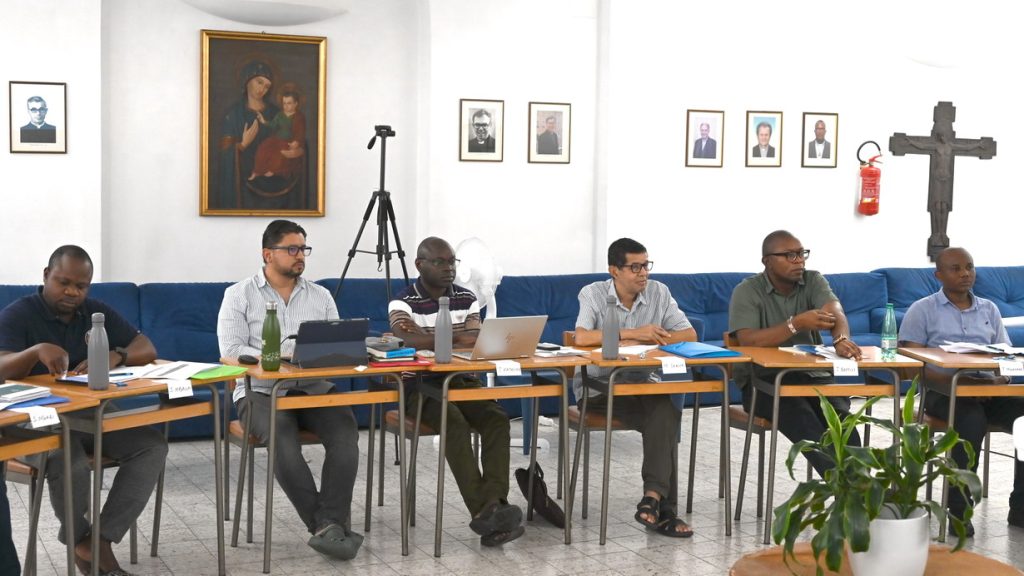
The topic of formation in emotional intelligence, included in the program of the ongoing formation course for IMC formators, was presented by Prof. Giuseppe Crea, a Comboni missionary (MCCJ), and professor of Psychometric Techniques and Psychology of Orientation at the Pontifical Salesian University of Rome.
By Josephat Mwanake *
Professor Crea introduced the topic with a question: “What do we do in formation courses on the topic of emotional relationships for and possibly the education of the same?” In response he then cited verses from the Bible (Rm 12, 10; 12, 16; 15, 7, 1Cor 11, 33) as well as some Church documents that speak of emotional balance (Vita Consacrata n.5, Fratelli Tutti, 93) that manifests itself in our relationships when these are based on truth and charity.
There are five educational components of emotional intelligence: self-awareness; management of emotions, self-motivation; recognition of emotions in others and management of relationships, as Father Crea explains in summarizing this theme in the following video made by the Secretariat for Communication.
In the formation process, the formator should accompany his students to go through these five steps, helping them to be aware of their emotions, to accept them and to manage them in a healthy way, recognizing that others also have their emotions. “It is by going through these five phases that one can enter into a mature relationship with others. So while the formee goes through these five moments, the formator accompanying him can also go through the same steps,” the speaker emphasized.

Professor Crea has a degree in Psychology, he is a psychotherapist and has obtained a PhD in Clinical Psychology. He is a regular member of the International Transactional Analysis Association (ITAA) and is part of the Association of Logotherapy and Franklian Existential Analysis (Alaef). He has written several books including: “The Secret of Happiness in Consecrated Life”, “Psychology of Discernment” and “Growing with Transactional Analysis”.
The concept of emotional intelligence
Explaining the concept of emotional intelligence, Prof. Crea showed “that the human brain has two parts: a rational mind that thinks and an emotional mind that feels. This nature of the human mind, with its two parts, allows us to talk about the concept of affectivity: the human being has the ability to think about his actions, that is, to reflect on actions, evaluate them and make appropriate decisions. “Feeling and thinking” are two interactive aspects or two sides of the same coin. Ultimately, emotional intelligence refers to the ability to understand, use and manage one’s emotions”.
Prof. Crea recalled that “emotional intelligence can be educated at any stage of life because the human brain is perfectly adaptable and continues its learning process practically throughout life”.

In summary, the importance of educating emotional intelligence is to help establish orderly relationships with others because the emotional state can interfere in the perceptive, mental and volitional processes. In other words, our emotions influence how we perceive reality and how we make our choices.
The ongoing formation course, promoted by the General Secretariat for Formation, is taking place at the Generalate in Rome from 2 to 17 September, and it brought together 13 formators from the various stages of formation: novitiate, philosophy, theology and specialization, who come from Africa, America and Europe. A second course is planned for September 2028. The General Secretariat for Formation includes the General Councilor, Father Mathews Odhiambo Owuor and Fathers Antonio Rovelli and Ernesto Viscardi who coordinate the work.
* Father Josephat Mwanake, IMC, Porta Pia Formation Community in Rome.




